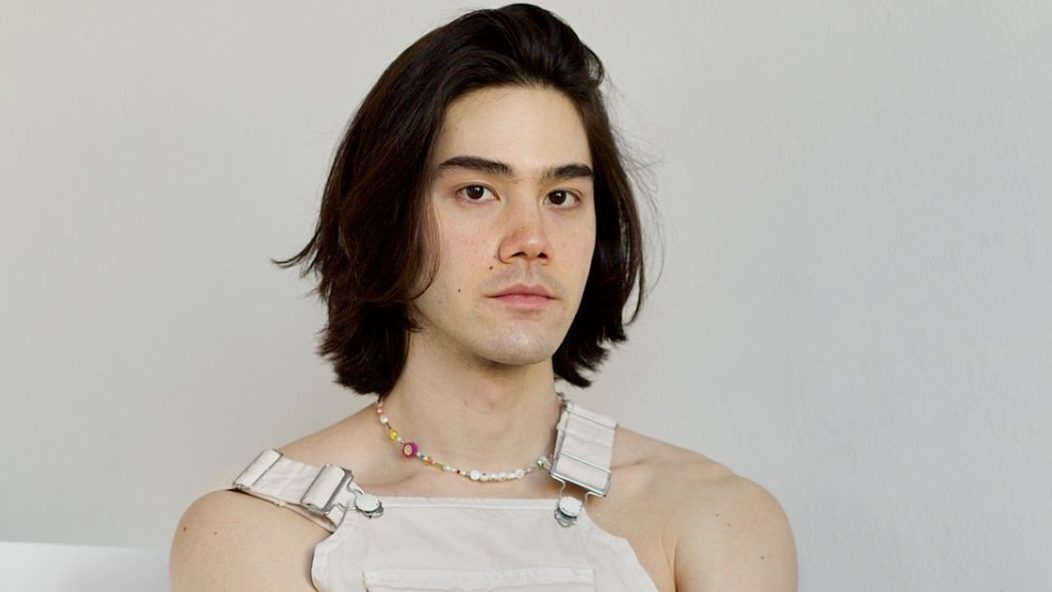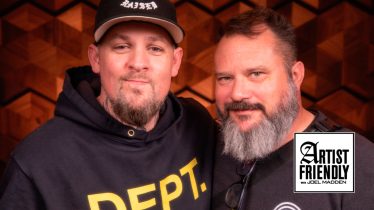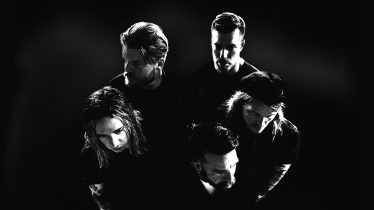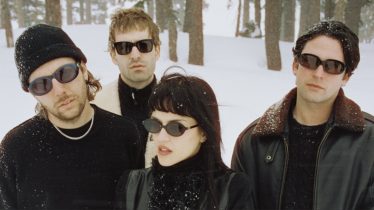
Comedian Jared Goldstein says working with 5SOS was a "dream job from heaven"
Jared Goldstein didn’t always want to be a comedian, but instead harbored ambitions of becoming a singer. Just ask his mother, who was serenaded by her son with a Backstreet Boys song at his bar mitzvah. As a child, he narrowly missed out on the role of Simba in the Broadway version of The Lion King and later took himself to Los Angeles to become an actor. You might have seen him in Modern Family or most recently as Dimitri in CBS series The Unicorn.
But over the past seven years, the New Yorker has been diligently carving out a name for himself on the stand-up circuit, with his gently barbed one-liners leading to a chance to roast the hell out of Aussie pop-rock outfit 5 Seconds Of Summer as part of a caustic interview sketch. We caught up with Goldstein on an immaculately lit Zoom call to find out more.
Read more: Billie Eilish brings Damon Albarn onstage for Gorillaz cover at Coachella—watch
What piqued your interest in stand-up comedy?
I wasn’t really interested in it when I was growing up, at all. I was doing theater; I was a singer, and that really felt like an identity to me. It wasn’t until I saw Jenny Slate in [2014 movie] Obvious Child that I ever thought that I, or anyone like me, could even do stand-up. I had auditioned for so many Bud Light commercials, and I just started to feel like, “What do I really want?” I thought about applying to grad school to do occupational therapy, but my credits had expired. I thought I’d just try stand-up first because it’s free to do. If that didn’t go well, then I’d enroll in beauty school.
Tell us about your first open mic slot.
It was in Los Angeles, probably like seven years ago. My first open mic wasn’t terrible, so I went to a few more, and it just built from there.
Before you found your voice, did you channel any specific comedic style?
No, but I loved listening to comedians on podcasts just talking about their lives. It was like a secret passion of mine. I’d listen to people like Sarah Silverman or Janeane Garofalo. I think that, as a kid, I just felt the most connection to women in media that I was seeing. It sort of started before I even knew that I was gay. I’d listen to women and felt the same.
Los Angeles is a hell of a place to start a stand-up career. Is thick skin necessary?
I started seeing a therapist shortly after I started because I was suddenly around strange men every night. It was bringing up old feelings of homophobia and insecurity; it just felt important to talk to someone about it. It really helped, going right from that office to open mics. It was an important time for me to just unlock, be uncomfortable and be honest with myself.
How long did it take to hone your act?
Once I heard someone describe their stand-up as autobiographical, I was like, “That’s what I’m doing.” I talk about myself. I talk about my family. I talk about dating. I’m not reinventing the wheel here, but it’s my story. At that point, I was already out of the closet, so it never even occurred to me to not be truthful. I mean, there’s some creative license, but I wanted to do it for me. It never occurred to me to be inauthentic in any way.
Getting a paid spot is a milestone for any comedian. How quickly did that happen for you?
The first time I ever got paid was probably nine months in. I did a comedy contest at a club called Flappers, and I won $500. I wish I’d kept the check. That would be very cute to just have, but I didn’t actually get paid for another year after that.
Many comedians started doing shows on Zoom following the pandemic. How hard was it to adjust to performing without feeding on the energy of a live crowd?
It was an adjustment, for sure, but I was having a lot of fun with it. I even bought a ring light. It’s very different than stand-up, but once I realized that everyone’s bubble had their full name on it and I could see into their apartments, it became this quick way to do crowd work and engage with people. When you’re at your computer, there’s a certain amount of anonymity. But here, I could just say hi to people, and it would activate people. You’d say somebody’s name, and suddenly everybody’s on alert. It was like they were at a show.
Every comic has bombed. How did you cope with that?
When I first started, I knew that Jerry Seinfeld bombed in the beginning, and he’s one of the greats. So when I started bombing, I thought, “I’m just like Jerry Seinfeld.” [Laughs.] One time, I thought, “What if I didn’t try to stop?” I just silently made eye contact with every person in the audience. It felt as bad as I thought it would, but I survived.
How did the 5 Seconds Of Summer sketch come about?
That was a dream job from heaven. As soon as I knew I was going to be writing sketches for someone famous, I immediately thought of Martin Short’s character Jiminy Glick. He’s one of my absolute favorites, and those interviews just kill me. It was so fun to write it and then do the interview. They really trusted me, and I felt that. They’re so down-to-earth and welcoming. They’d suggest things for sketches, but so politely. These guys are millionaires! It was so exciting when it came out online because their fans are so in love.
Are you working toward recording a special?
No, I have an hour that I perform in cafeterias at colleges all across this great nation. I have performed for tens of unsuspecting 20-year-olds in Iowa, Michigan, Illinois. I can go on. I don’t often think about doing an hour. I guess I’d like to at some point, but if I never did an hour, I’d be fine with that as well. It could just take forever. One of my favorite specials ever is Chelsea Peretti’s One Of The Greats; that was 14 years of her stand-up. It is a perfect 60-minute piece of art. Other people turn [specials] out really quick, like Ali Wong, and they’re incredible. There doesn’t seem to be one right way to do it.
So where will we find Jared Goldstein a few years from now?
I recently purchased a Nintendo Switch, which has been so fun and life-changing. So I want to be a national spokesperson for the Nintendo Switch. That’s the main goal.
This interview appeared in issue 404 (The Modern Icons Issue), available here.







